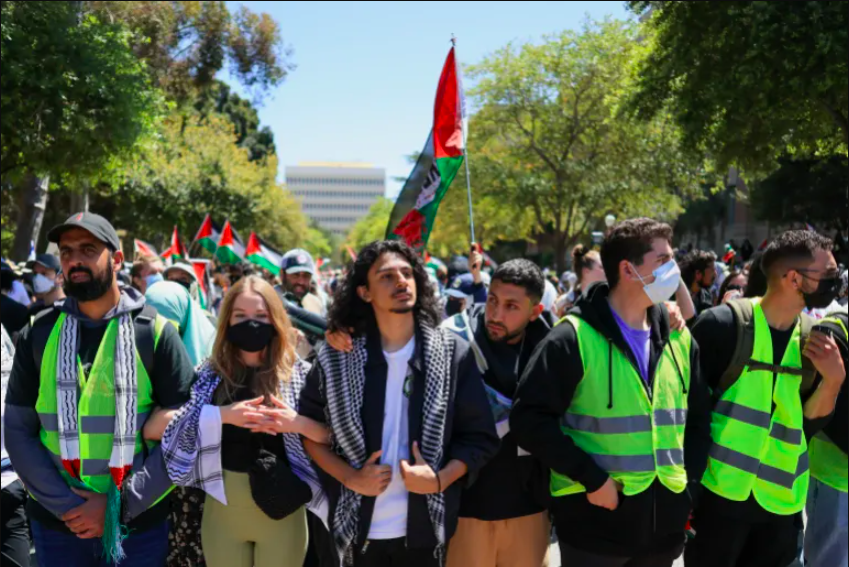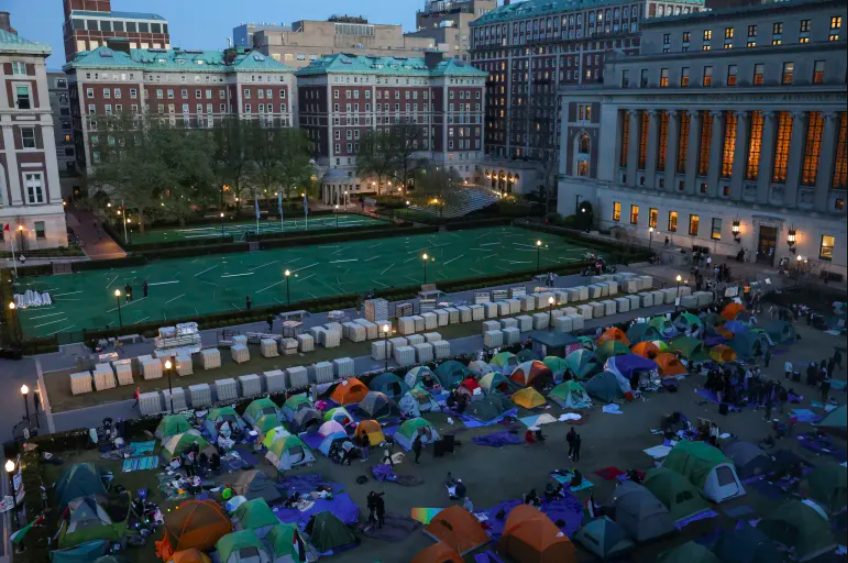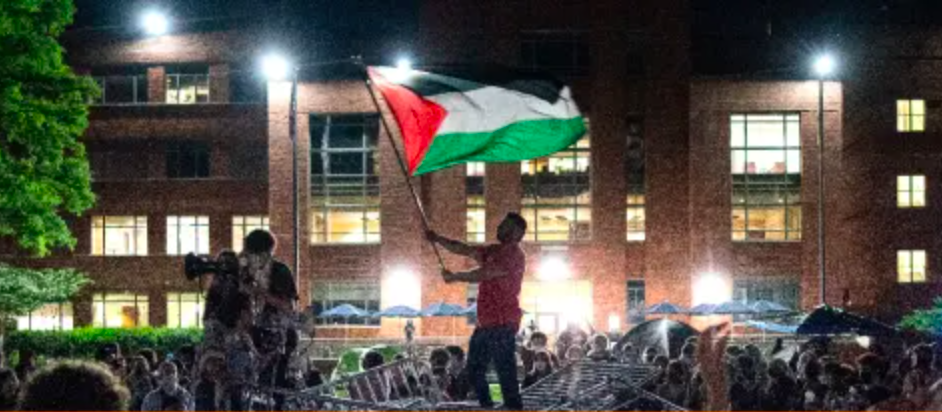
Published 04/29/2024 16:45
Pro-Palestine demonstrations and protests are taking over college campuses in the United States and around the world, with students and faculty members demanding concrete action in response to Israel’s war in Gaza, which has lasted more than six months. The protests have resulted in approximately 900 arrests in the last 10 days, with the involvement of teachers, journalists and even politicians, such as US presidential candidate Jill Stein.
At Columbia University in New York, one of the most prestigious institutions in the US, pro- and anti-war protests have intensified, culminating in the arrest of more than 100 protesters on April 19, when police dispersed a camp set up by students. The situation escalated on April 24, when Republican House Speaker Mike Johnson urged the university president to resign if she was unable to control the protests.
The events at Columbia University evoked dark memories of past conflicts, such as the Ohio National Guard’s fatal shooting of Kent State University students in 1970 during anti-Vietnam War protests.
Amid the protests, Columbia administrators announced that classes would be taught in a hybrid format through the end of the spring semester. Pro-Palestinian students at the university are demanding that the institution cut ties with companies that profit from the war in Gaza.

These protests are not limited to Columbia. More than 50 other college campuses around the world have witnessed mass demonstrations, including prominent universities such as Yale, Harvard, Virginia Tech, the University of Texas at Austin and the University of California at Berkeley.
In Australia, demonstrations take place at the Universities of Melbourne and Sydney. In Canada, at McGill and Concordia Universities. In France, the weekend was marked by barricades at the Paris Institute of Political Studies (Sciences Po) and the Sorbonne University, two centers of European excellence. In Italy, students are mobilized at Sapienza University and in the United Kingdom, at the Universities of Leeds, College London and Warwick.
Clashes and arrests
Clashes between pro-Israel and pro-Palestine protesters have been reported at several universities, with episodes of violence occurring at UCLA (Los Angeles) and Northeastern University (Boston), among other locations. Police were called to intervene in several of these situations, resulting in dozens of arrests. In Boston, the repression was motivated by cries of “death to the Jews”. However, videos proved that the screams were coming from protesters waving Israeli flags.
At the University of California at Los Angeles (UCLA), although the Los Angeles police were not called and no arrests were made, officers from other parts of the country were sent to campuses on Saturday, with some using chemical irritants and Tasers. to disperse the students.
In Boston, approximately 100 people were detained by police while a protest camp at Northeastern University was being cleaned. Images on social media showed security forces equipped with anti-riot equipment and officers loading tents onto a truck. In a statement, Northeastern announced that the area of campus where the protests occurred was now “fully secured” and that “all campus operations have returned to normal.”
In Bloomington, in the Midwest, the Indiana University Police Department arrested 23 people while dismantling a protest camp on campus, as reported by the Indiana Daily Student newspaper.
At Arizona State University, on the opposite side of the country, 69 people were arrested for trespassing after the group set up an “unauthorized camp” on campus. Arizona State officials said most of the protesters were not students, faculty or staff at the university.
In St. Louis, at Washington University, at least 80 people were arrested, including US presidential candidate Jill Stein and her campaign manager.
University leaders have struggled to contain the protests but have so far had little success. Demonstrations continue to gain momentum, with students and teachers demanding a ceasefire in Gaza and divestment from companies linked to Israel.
Consequences and risks

Student protests at universities have generated not only visibility for various causes, but also significant repercussions for those who choose to raise their voices. Amid demonstrations across the world, students face suspensions, probation and even expulsion from their educational institutions.
Momodou Taal, one of four students at Cornell University in New York state temporarily suspended for setting up a camp on campus, described the pressure protesters faced. In addition to disciplinary measures, these students have been targets of threats and doxxing, the unauthorized publication of their personal information on the internet.
In Canada, the first protest camp in solidarity with Palestine appeared at McGill University in Montreal, highlighting the internationalization of the student movement. In Australia, tents were set up on the lawn of the University of Sydney, demonstrating the global spread of student concerns and mobilizations.
In a statement, the vice-chancellor of the University of Sydney, Professor Annamarie Jagose, reiterated the institution’s commitment to the right of protesters to express themselves peacefully, but emphasized the “zero tolerance” policy for any form of discrimination or hate speech.
Campus protests have a long history of being effective in promoting social change, as evidenced by the civil rights movement in the United States and the anti-apartheid struggle in many parts of the world. However, students who participate in these demonstrations take great risks.
The price of protests can be high. If they violate university rules, they may be expelled. Tuition costs more than US$50,000 per year. For many of them, it is an education they have prepared for their entire lives.
Source: vermelho.org.br

